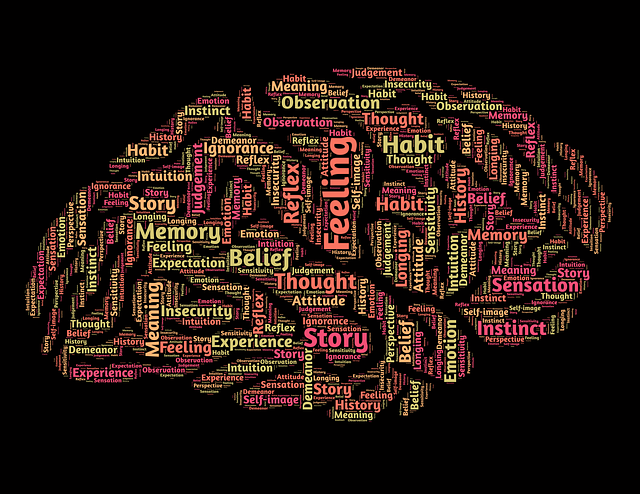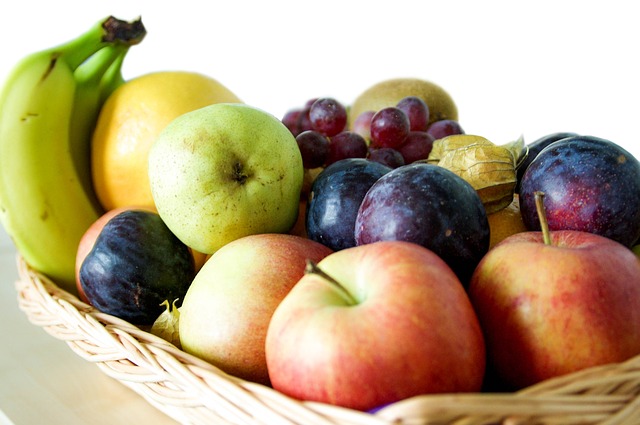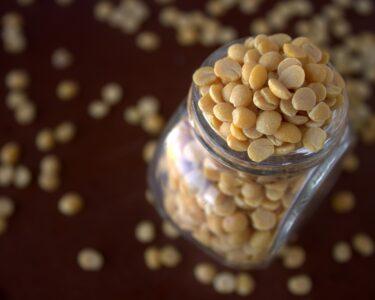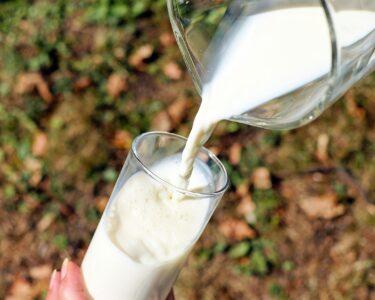What do you want? Good score? Admission to the best college? Then you must eat well. By the way, what are you eating these days? A lot of health drinks, walnuts, almonds for boosting memory and concentration? Follow the step-by-step guide for diet during the exam.
You are what you eat. We are born with a predetermined brain capacity but only favorable conditions enable us to reach that limit. Good nutrition is one such crucial condition that you must not ignore.

Why diet is important before exam?
You are educated. Understand the connection between brain development, cognitive development and the role of nutrition before blindly believe anything.
Nutrients are the building blocks of our body –
| Our body is made up of | Our body function by |
| Water (55-65% )- brain has 73% ) | Carbohydrate – 60% of daily energy should come from carbohydrate |
| Protein (15-20%)- brain has 8%) | Vitamins & Minerals – act as catalyst/cofactor in all the biochemical reactions happen during metabolism |
| Fat (15-30%)- brain has 10-12%) | |
| Mineral (5.5-6%) |
What is the brain & cognitive development?
A rapid change in the brain takes place and the brain forms and refines a complex network of connections in the brain through-
- Synaptogenesis (formation of synapses between neurons in the nervous system)
- Pruning (brain eliminates extra synapses) and
- Myelination (the process of coating the axon of each neuron with a fatty coating called myelin) – It is like the insulation of nerves.
90% of our brain development happens before the age of 5 years and the rest 10% after that. However cognitive development enables you to read, think logically, prioritize, understand situations, plan, solve problems, make decisions, reason, etc. Cognitive development is continued even after 12 years.
To achieve the development milestones all you need is quality nutrition support from the beginning. Therefore Nutrition is the fuel for Brain & cognitive development.

What happens when you have the wrong nutrition?
- Brain volume decreased
- Decrease in number of neurons, synapses, dendrites and reactive zones
A young brain is remarkably plastic (the ability of the brain to modify its connections or re-wire itself) and more flexible to repair after nutrition repletion. But during the rapid brain growth phase, the brain remains vulnerable and the brain vulnerability to nutritional insults is likely to outweigh its plasticity.
The impact is not desirable to anyone.
The nutritional insult at an early age leads to-
- Less interest in learning which negatively influences cognitive development
- Slower language, fine motor development
- Lower IQ
- Poor school performance
What are the potent toxins to your brain?
Potential toxins for the brain are –
- Refined sugar
- Refined flour
- Trans fat
- Refined oil
- Refined salt
So it is clear for utilizing your brain capacity to the fullest you should not allow any of these toxins to get into your system. (1,2)
Your exam diet- step by step
Choose your carbs wisely

Your exam is coming and you need to stay energetic throughout the day to concentrate, understand, process, and memorize whatever you are studying throughout the day.
You need a carbohydrate. 60% of your total consumed calories must come from carbohydrates to maintain the nutritional balance.
No, carbs are NOT bad until you choose to pick the wrong one.
The good carb –
Cereals (rice, wheat, corn, ragi, other millets, barley, etc) and its products (sooji, daliya, chirwa, murmura, etc.) are the prime sources of carbohydrates in your diet.
A basic level of processing of these cereals is essential to be able to digest them. Take whole grains, less processed cereals that are loaded with fiber and vitamin B complex. Fiber will help you to maintain gut health and the vitamin B complex will keep the inflammation under control. Less processed cereals digest slowly, have low glycemic value, release energy for a longer period and also help to control blood sugar levels.
Good carb helps to focus, concentrate, improve memory and keep you calm. (8)
No need to switch to brown/ black/ wild rice. Your body may find it difficult to digest the extra fiber and leads to bloating, flatulence, acidity, etc. Rather eat hand-pounded, steam white rice. If you are a wheat fan, use whole wheat flour for making roti/paratha. Indulge in season-based millets. Keep variety in your cereal choice. Eat poha, upma, sooji halwa, roasted bhutta, homemade popcorn, roasted chirwa/ murmura as a cereal-based healthy snack.

The bad carb –
Being a potent toxin for the brain, avoid refined sugar and refined flour in every situation.
These have low/no fiber with a high glycemic index, digest in no time, and shoot blood sugar levels at once. Refined sugar and refined flour are associated with hyperactivity, difficulty in concentration and attention.
Refined sugar comes in 65 different names even if processed food packet suggest NO SUGAR, still there are sugar in the name of sucrose/ High-Fructose Corn Syrup (HFCS)/ Barley malt/Corn syrup/Corn syrup solids/Dextrin/ Dextrose/ Ethyl maltol/ Glucose/ Glucose solids/ Lactose/ Malt syrup/ Maltodextrin/ Maltose/ Rice syrup/ Crystalline fructose/ Fructose/ Galactose etc.
A study conducted by Princeton University in 2008 showed that a high intake of sugar makes changes in the brain similar to the intake of cocaine in animal experiments. (3, 4)
| Good carb | Bad carb |
| Whole cereal – rice, wheat, corn, ragi, other millets, barley, etc. | Refined flour and refined Sugar |
| Whole cereal products – sooji, daliya, chirwa, murmura etc. | Sugar is present in processed foods in 65 various names |
| It improves concentration, memory, attention | It leads to hyperactivity, poor concentration, memory, and attention |
Pick the right protein
As per your 9th-grade biology, you are aware that protein molecules are made up of a bunch of amino acids. The brain needs a continuous supply of amino acids for the synthesis of neurotransmitters (serotonin, catecholamines).
Eat a protein-rich diet daily. 14-15% of your daily calories should come from protein food to maintain the nutritional balance in your body.
Don’t panic or be afraid if you are a vegetarian. The entire machinery is working towards making people feel that vegetarians are deficient in protein. It’s not. So don’t get into the trap.

Even a vegetarian diet can meet the regular protein intake without having any protein supplements. Mixing cereals with pulses improves the protein quality as good as animal protein and makes it a complete protein providing all essential amino acids.
Take a variety of dal, one handful of sprouts, a fistful of nuts and seeds daily. If you are a non-vegetarian, then have an egg, moderate portion of fish/ chicken/ meat for good quality protein. Focus on the quality not on the quantity to meet your protein need.
Your daily protein should come from-
| Veg protein source | Non- veg protein source |
| Pulses (all types of dal) | Egg |
| Sprout | Fish |
| Beans and peas (Rajma, Soyabean, green peas, Cowpeas etc) | Chicken |
| Roasted pulses and legumes | Meat |
| Nuts (Peanut, walnut, cashew, almonds etc) | |
| Seeds (pumpkin seed, watermelon seed, sesame seed, flax seed, garden cress seed etc) | |
| Milk and milk products | |
| Soya milk and tofu |
Feel free to add good fat
After good carbohydrates, it’s time to include good fat in the diet. Fat will not make you fat if taken in moderation.
Refined oil/ Trans fat/High saturated fat is the bad fat that you must avoid. The brain relies on natural fats to create and maintain cell membranes and carry fat-soluble vitamins A, D, E and K.

The bad fats (trans fats, refined oil) –
• cause cellular destruction, harm hormone production, adversely affect memory, and increase inflammation in the brain. Inflammation in the brain can inhibit the body’s production of Omega 3 fatty acids. Omega 3’s are essential to brain function.
• High saturated fat intake has been related to cognitive deterioration
• Studies have shown that high levels of trans fats may reduce serotonin production in the brain, leading to depression as well as adversely affecting memory. (10)
Essential fatty acids – Omega 6 fatty acid -linoleic acid (LA), EPA, DPA, DHA, and Omega 3 fatty acid -alpha-linolenic acid (ALA), AA are needed for your proper brain function. The ideal ratio for omega 6:omega 3 is 4:1-5:1. It has been the seed that most of our diet has a ratio of 20:1.
| Good fat | Bad fat |
| Cold-pressed oil / Kachhi Ghani oil / Filtered oil | Processed foods contain high saturated fat and trans fat |
| Nuts and seeds | Refined oil |
| Ghee |
Micronutrients are must
Micronutrients – Vitamins and minerals are essential as they act as the cofactor/ catalyst in most biochemical reactions. The deficiency of micronutrients leads to multiple diseases impacting brain health.
Vitamins B1, B6, B12, B9 (folic acid) and D, choline, iron, and iodine exert neuroprotective effects and improve intellectual performance.
Antioxidants (vitamins C, E, A, zinc, selenium, lutein, and zeaxanthin) have a very important role in the defense against oxidative stress associated with mental deterioration and in the improvement of cognition. (9)

Consume lots of sabji daily. I know it might be boring but vegetables and fruits have all the natural power of micronutrients and antioxidants that no cream, shampoo, oil, fails to give you. Eat at least 2 bowls of vegetables every day with your main meal. Consume 2 fruits a day – one citrus fruit (amla/lemon/orange/mosambi etc) and other fruit (banana/ guava/papaya/watermelon/ber etc) without fail.
Micronutrient/antioxidant sources-
| Actual source | Food that fools you |
| Fresh vegetables (green leafy vegetables, roots and tubers, and other vegetables) | Instant vegetable soup, processed instant foods with frozen vegetables |
| Whole local fruits | Instant packaged fruit juices |
Note-
Control your refined salt intake. The day you can cut off your processed food addiction you can manage to control refined flour, refined oil, refined sugar, and refined salt intake. Yes, cutting off processed junk will help you to get rid of all the five potent brain toxins.
WHO suggests 5 g of salt intake per day. Our usual diet has been found to have 10 g of salt every day. It’s needless to say that excess salt mess up with your blood pressure and creates a list of health hazards
Diet is NOT ENOUGH. You must work on factors that help to absorb the nutrient properly. Adequate water intake, activity, exercise, and deep sleep is must to utilize the nutrient in your body.

Don’t hesitate to stay hydrated
We often forget that our brain has 73% of water. Even a drop of 1% water level leaves a huge impact on our body and brain function. Water improves concentration and cognition, balances mood & emotions, and maintains memory function. (6)
Drink to 10 glasses of water without fail. Don’t complicate the process with warm water/ hot water/ cold water etc. Just keep drinking simple safe normal water.
Ensure adequate activity and exercise
You must take some time out for exercise daily. Certain hormones increased during exercise improve memory retention.
British Columbia University published a study where they showed that aerobic exercise daily, helps to boost the size of the hippocampus, the area in the brain which is involved in verbal memory and learning.
Apart from exercising, stay active throughout the day whenever possible. (7)
Enough sleep –
Sleep is not a luxury but a necessity. A night of good deep sleep for 7- hrs is MUST for better brain function, concentration, and good memory. During deep sleep, the blood supply to the muscles, energy is restored, tissue growth and repair occur, and important hormones are released for overall growth and development. (5)
Manage stress –
It is maybe enormous pressure for you at this point. But learn to manage your stress. Spend time for developing a hobby, outdoor play. It creates magic. Trust me.

Eating tips
- Focus on food quality, not on quantity.
- Don’t binge on food that makes you feel sleepy at an odd time
- Avoid all types of processed foods to cut down potent brain toxins. Say NO to all types of biscuits, instant noodles, instant pasta, packaged fruit juices, chips, chocolate, packaged snacks, instant popcorn, etc.
- Eat 4-5 wholesome meals (3 major meals and 1-2 healthy snacks) daily
- Indulge on seasonal, local variety & homemade food
- Eat when you eat. Don’t get distracted with books/phone/television or with other gadgets. Focus on eating your portion only.
- Eat slowly for better digestion and portion control. No one will snatch your food.
- Don’t miss vegetables (2 bowls), fruits (2 types), sprouts, nuts and seeds (1 handful each) in your daily diet.
Frequently asked questions –
How about health drink?
You are literate. Don’t fall for the catchy tagline and advertisement as the reality is at the back of the package.
The popular health drinks are mostly –
- Loaded with sugar using various names
- Too many preservatives and additives
- Highly processed, no natural micronutrient present
- Fortified with vitamins and minerals which may/may not get absorbed in the body
- Showcase studies that are limited in number, sponsored, the bias in methodology and have a very small sample size.
Rather have grounded peanut/cashew with milk. You can also try sattu water, homemade health drinks, coconut water, homemade, seasonal, local vegetable /fruit juice along with the pulp. Yes, they sound simple but extremely effective.
What are the top foods for memory and concentration?
All the foods are great when taken the good quality and in the right amount. Understand good nutrition is a combination of good foods along with adequate water intake, sleep, and exercise.
If you are thinking of continuing eating junk along with your morning 5 walnuts, it will not be a help.
Is milk mandatory?
No, especially if you are allergic or find difficulties in digesting milk. Try milk products – curd, buttermilk, etc. If you can’t tolerate milk at all, include an extra handful of sprouts/ dal in your daily diet. You will be fine.
Bottom line
A healthy diet is all that you need to improve your concentration, focus, and memory. Avoid 5 potent toxins at all costs – refined flour, refined sugar, refined salt, refined oil, and trans fat. Focus on food quality. Then even a little amount will provide you with good nutrition. Stay hydrated, stay active and enjoy your sleep. Follow the step-by-step guide for diet during the exam. Everything will fall in place. ALL THE BEST.





